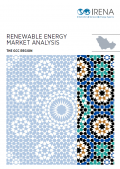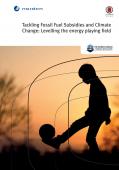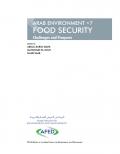

This report presents a model that analyses fossil fuel subsidy reform across 20 countries showing an average reduction in national GHG emissions of 11% by 2020, and average annual government savings of USD 93 per tonne of CO2 abated. With a modest recycling of resources to renewables and energy efficiency, emissions reductions can be improved to an average of 18%. Some countries have included reforms in Intended Nationally Determined Contributions, toward a climate agreement. The report presents case studies from Morocco, Philippines and Jordan and was authored by the Global Subsidies Initiative of IISD, as part of the Nordic Prime Ministers’ green growth initiative.


Renewable energy together with energy efficiency, sustainable transport, sustainable agriculture, sustainable tourism, green building and waste management are economic sectors which are often considered capable of paving the way for a transition to a green economy and providing win-win solutions offering job creation, poverty alleviation and environmental protection. However, there are a number of obstacles and challenges that might inhibit these sectors in their contribution towards greening the economy. These include limited knowledge and awareness relevant to green economy and green jobs, gaps in policy and regulations, limited financial incentives to support green initiatives, and related awareness and skill shortages.
